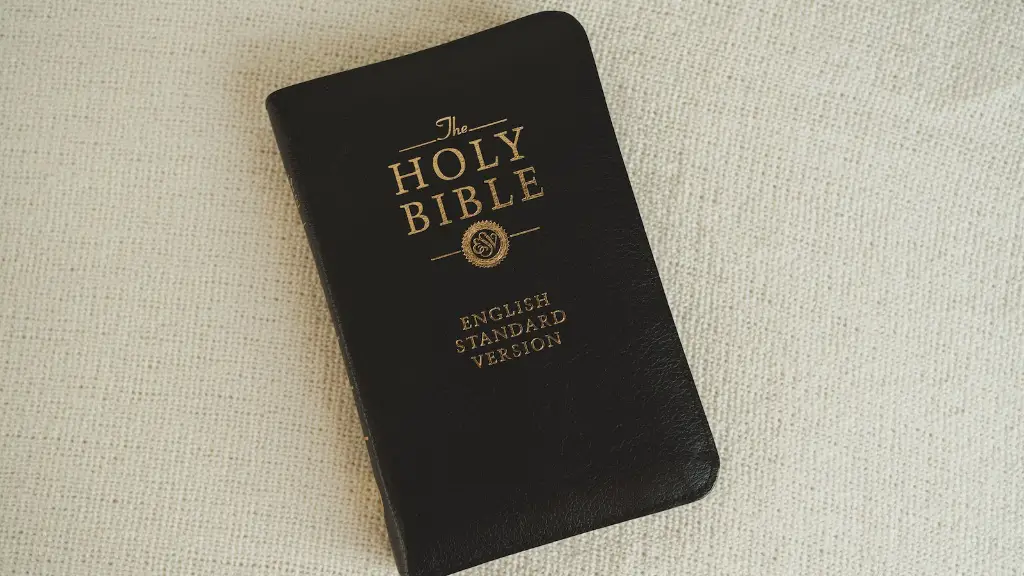Adam’s First Wife In The Bible: Adam, the first man in the bible, was created from the dust of the ground by God. As told in the Bible, he was alone and God saw that it was not good, so He created a help for Adam in the form of Eve, Adam’s wife. Many people are unaware of the fact that, according to the Bible, there was a first wife for Adam before Eve was created.
The first wife of Adam was named Lilith. The story of her origin in the bible, which is not canonical, is found in the Alphabet of Ben-Sira, a medieval miscellany of Jewish folklore, which describes Adam and Lilith as both being created by God but in different ways. Adam was created from the dust of the ground, while Lilith was made from the clay of sediments beneath the waters.
One thing to note is that the biblical story of Adam and Lilith is very different than the common one of Adam and Eve. In the Hebrew Bible, there is no mention of Lilith as Adam’s first wife, and never any explicit relationship between them. Lilith is not even mentioned by name; however, passages hint that there was a prior relationship between Adam and a being who was not Eve.
It is believed that Lilith wanted to be the dominant partner in their relationship, but Adam did not agree. When Lilith tried to claim her supremacy, God separated them. Lilith then left the Garden of Eden. This infuriated God, who cursed her to be a demon who would harm babies and pregnant women. Some sources also state that Lilith was a revengeful demon who seduced Adam in order to take away his place in Eden and force him to leave.
The Hebrew Bible does not explain this story, but it is assumed that Adam and Lilith had a disagreement, resulting in Lilith being exiled from the Garden, while Adam and Eve were created and put together to stay in the Garden. Adam and Eve are seen as a team, working together and respecting each other, unlike what happened with Adam and Lilith.
Regardless of the truth behind their story, it is clear that the biblical account of Adam’s first wife is an interesting one. Contrary to popular belief, Adam and Eve were not the world’s first couple – that honour belongs to Adam and Lilith.
Symbolic Meaning of Lilith
Historical records indicate that Lilith is an ancient Middle Eastern female demon or deity. She is best known for her role as the first wife of Adam in Jewish mythology. Lilith has come to symbolize female independence, sexual freedom and strength, and is strongly associated with the feminist movement.
In the Western world, Lilith has become the embodiment of the feminine wild nature, but her story can be interpreted differently within different cultures. In Kabbalah, Lilith is seen as a powerful symbol of the feminine principle, as well as a fallen angel who influenced the Kabbalists’ understanding of the female aspects of the Divine.
In some Jewish circles, Lilith is seen as a symbol of evil, while in other circles, she is seen as a symbol of sacred femininity and strength. In any case, her story has captivated generations of people, who are fascinated by her complex character and mythology.
The story of Adam’s first wife in the bible has been an important source of inspiration for feminists, artists and writers alike, who use her story to express the idea of female power and independence in the face of patriarchy.
Legacy of Lilith
Lilith has remained an important figure in Jewish circles, and a symbol of feminine power. She has been featured in various literary works, such as the 19th century play by George MacDonald, Lilith: A Play in Three Acts, which centres around Lilith as a strong character who refuses to be a subservient wife. In modern day popular culture, Lilith is often portrayed as a seductive creature in visual media, such as comics and video games.
Additionally, there is a contemporary feminist movement associated with the figure of Lilith. The Jewish feminist movement known as The Lilith Initiative aims to empower Jewish women, break cultural norms and create a better society for all. This movement takes its name from the biblical character, and is an example of how Lilith’s story still influences people today.
The Debate About Lilith’s Origin
The origin of the Lilith character is a great source of debate among scholars, and there is no clear consensus on where the idea of a first wife for Adam originates from. Some scholars believe that Lilith was a Canaanite goddess, while others believe she was a Babylonian goddess. There is also the possibility that she was an amalgamation of different cultures and religions.
Some theologians have even suggested that the first wife of Adam was an alien creature sent by God. This theory is based on the strange characteristics of Lilith, such as her penchant for sorcery, her transformation into a serpent and her relationships with other mythical creatures.
Whether Lilith is a figure from mythology or the product of religious imagination, one thing is certain: her story has captivated people for centuries. Her mythical character highlights the power of women, and is a reminder of their potential for independence and strength.
The Influence of Lilith Today
In contemporary times, the figure of Lilith has become a powerful symbol in the feminist movement. Her story is often used to talk about female autonomy, strength and independence. Women, who identify with Lilith’s story, take comfort in knowing that they too can challenge patriarchal systems and stand up for their rights.
In addition, Lilith’s story is often used to highlight the need for respect and equality in relationships. Her story serves as a warning against the dangers of inequality, and encourages couples to strive for mutual respect and understanding.
In short, the biblical story of Adam and Lilith is an intriguing one. Whether she is a mythical creature or a religious figure, Lilith has become a powerful symbol for feminists today. Her story serves as an inspiration to those who seek to challenge patriarchal systems, and encourages couples to strive for mutual respect and understanding in their relationships.
The Debate About Lilith’s Character
In popular culture, Lilith is often presented as a mere seductress who lures Adam away from God, although some scholars present her in a more sympathetic light. According to some interpretations, Lilith is not a seductress, but a woman fighting against social norms and patriarchal systems.
In fact, some theologians and feminists view Lilith as a hero who fought against oppressive systems and sought to achieve her own goals and independence. This interpretation of Lilith serves as an inspiration for women who are striving for freedom and justice in their lives.
In short, the debate about Lilith’s character continues to be a hot topic of debate among scholars and feminists. Some believe she is a seductress, while others view her as a hero. Ultimately, it is up to each individual to decide how they view the character of Lilith and what message they take away from her story.
Lilith in Art and Literature
Lilith has been the subject of many works of art, literature and music. Her story has been depicted in various forms, such as plays, novels, paintings and sculptures. In addition, her story has also been the basis for some of the most iconic songs of all time, such as Led Zeppelin’s ‘Ramble On’ and Heart’s ‘Barracuda’.
In more recent years, Lilith has been featured in visual media such as animated films and graphic novels. Moreover, many modern authors have used Lilith as the basis for their characters, further emphasizing her importance in today’s culture.
Overall, it is clear that Lilith has a significant influence on art and literature. Her story has inspired numerous works of art and literature, as well as several iconic songs. Her story speaks to the power of female independence and serves as an important symbol for feminists today.
Conclusion of Lilith’s Significance
The story of Adam’s first wife in the bible is an intriguing one, and Lilith has become a powerful symbol in the feminist movement. Her story serves as an inspiration to those who seek to challenge oppressive systems, and encourages couples to strive for mutual respect and understanding in their relationships. Lilith has also been the subject of numerous works of art, literature and music, further demonstrating her significance in popular culture.





